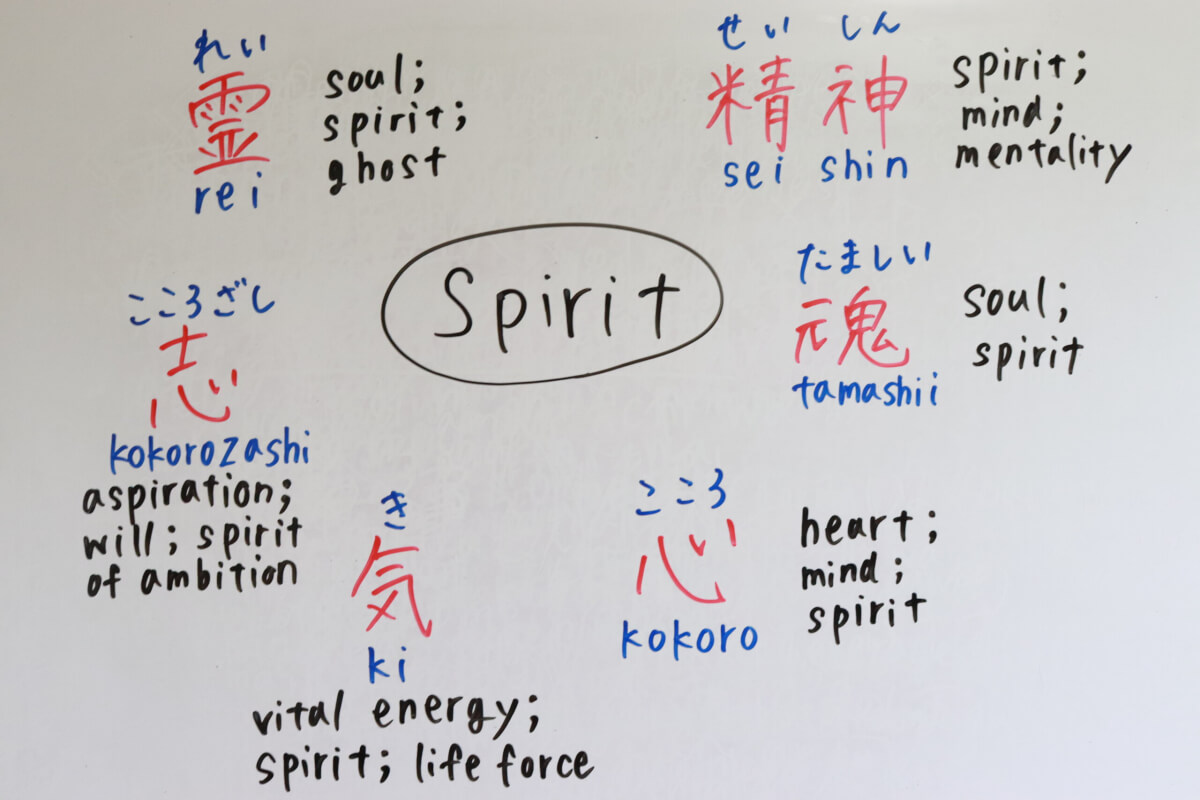- Release Date:
Japanese word for spirit

In Japanese, the concept of "spirit" reflects the deep cultural, emotional, and philosophical values of the country.
These words cover everything from life energy to the inner essence of a person. We’ll explore some of the key Japanese words for "spirit" and their meanings in this article.

精神 (せいしん /seishin/)
Meaning: Spirit, mind, mentality
"精神 (せいしん /seishin/)" encompasses both the emotional and intellectual aspects of a person. It refers to one’s inner spirit or willpower, as well as the mental focus and determination that guide thoughts and actions.
In Japan, this word is often used to describe someone’s strong mental attitude or unwavering dedication in the face of hardship. For example, 精神力 (せいしんりょく /seishinryoku/): This word refers to mental strength or willpower. It’s commonly used to describe the fortitude needed to endure difficult situations.
魂 (たましい /tamashii/)
Meaning: Soul, spirit
"魂 (たましい /tamashii/)" refers to the essence of a person—their soul or life force that continues even after death. This word conveys a sense of something eternal, and it’s often used in both religious and philosophical contexts to express the idea that a person’s soul exists beyond their physical body.
心 (こころ /kokoro/)
Meaning: Heart, mind, spirit
"心 (こころ /kokoro/)" is a deeply philosophical word in Japanese, encompassing the heart, mind, and spirit as one interconnected whole. It’s not just about emotions or thoughts, but about the essence of a person’s being.
In literature and conversation, "心 (こころ /kokoro/)" often refers to one’s innermost feelings, desires, and character—essentially, the true self.
気 (き /ki/)
Meaning: Vital energy, spirit, life force
"気 (き /ki/)" is a concept rooted in traditional Japanese and Chinese philosophy, referring to the vital energy or life force that flows through all living things. The idea of "気 (き /ki/)" is central to understanding balance and harmony in life.
志 (こころざし /kokorozashi/)
Meaning: Aspiration, will, spirit of ambition
"志 (こころざし /kokorozashi/)" emphasizes the spirit of determination or ambition—a person’s willpower or drive to achieve their goals. It’s often used to describe someone’s inner sense of purpose or mission in life, blending the concept of spirit with personal growth and achievement.
霊 (れい /rei)
Meaning: Soul, spirit, ghost
"霊 (れい /rei)" is often used to refer to spirits of the dead or ghosts in Japanese culture.
It’s associated with the spiritual afterlife and the belief that spirits can linger or return to the physical world. The word "霊 (れい /rei)" is central to many religious practices, such as obon festivals in August, where families honor the spirits of their ancestors.
In Japanese culture, the concept of "spirit" is integral to understanding how people relate to the world, each other, and themselves.
